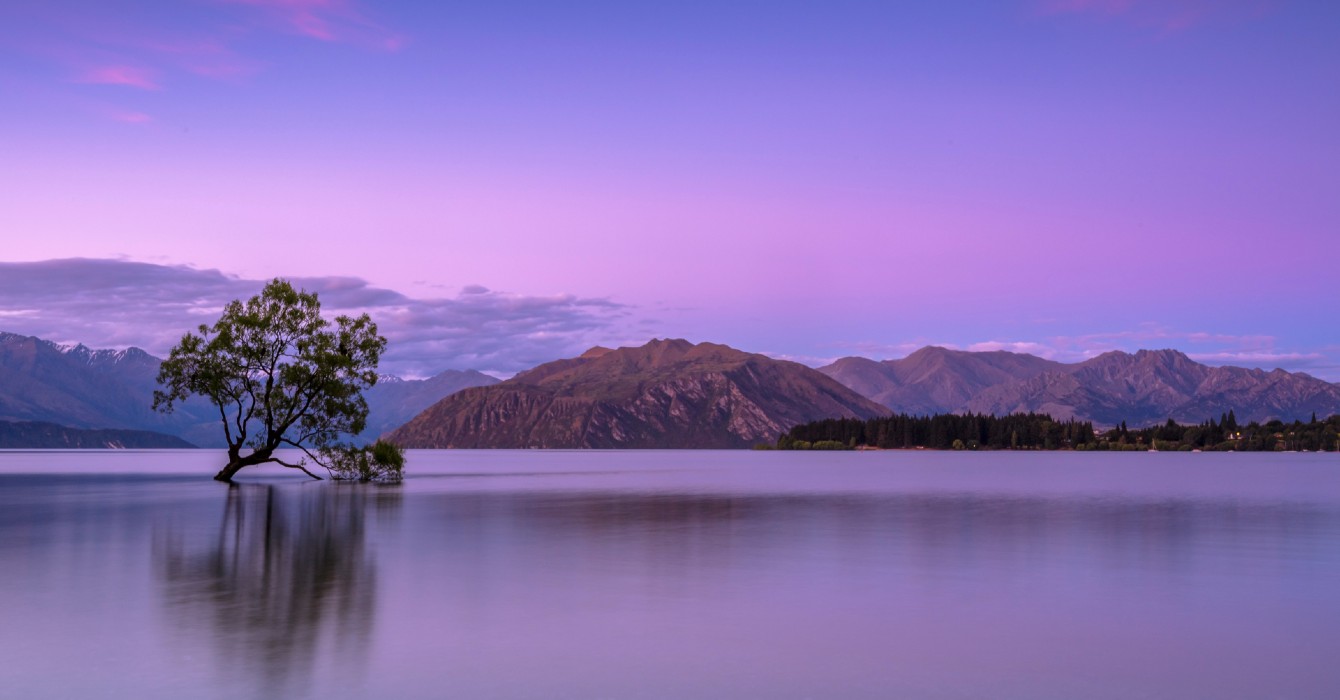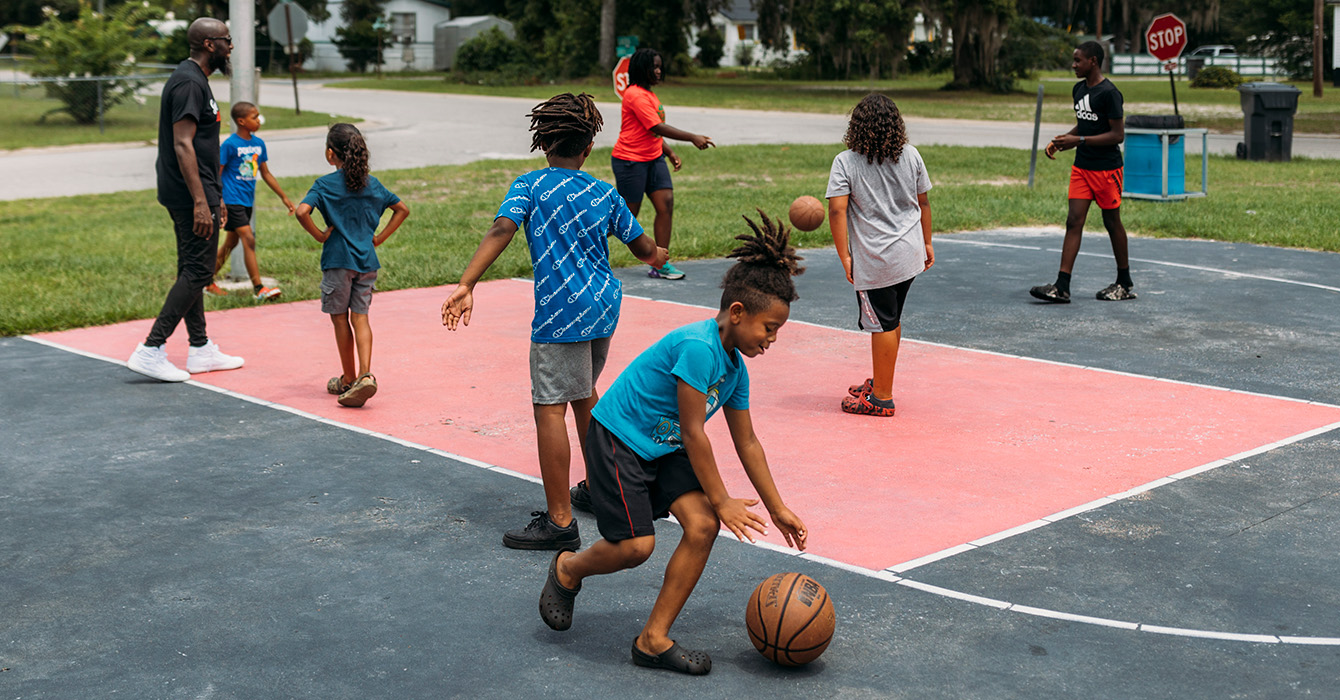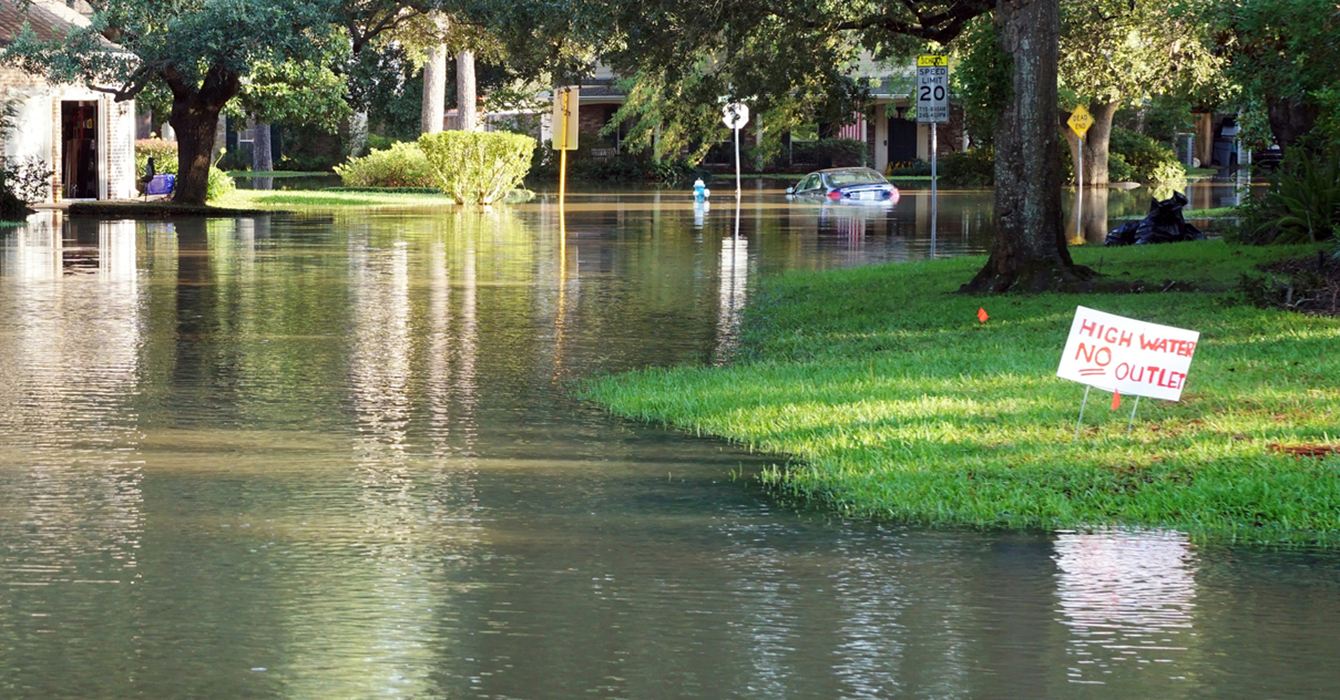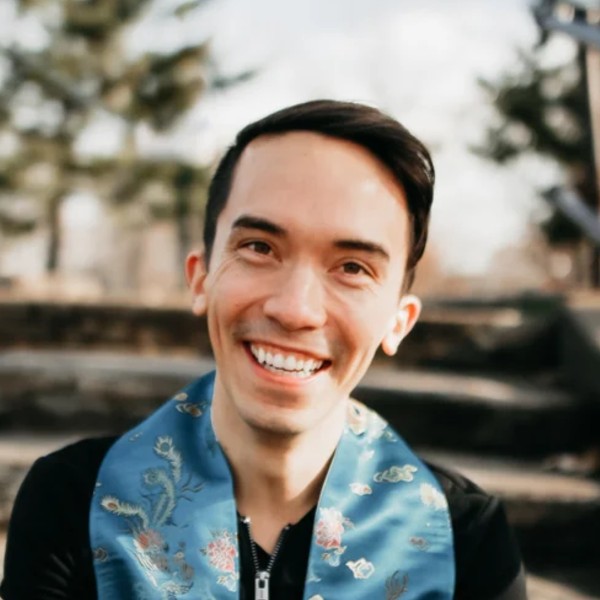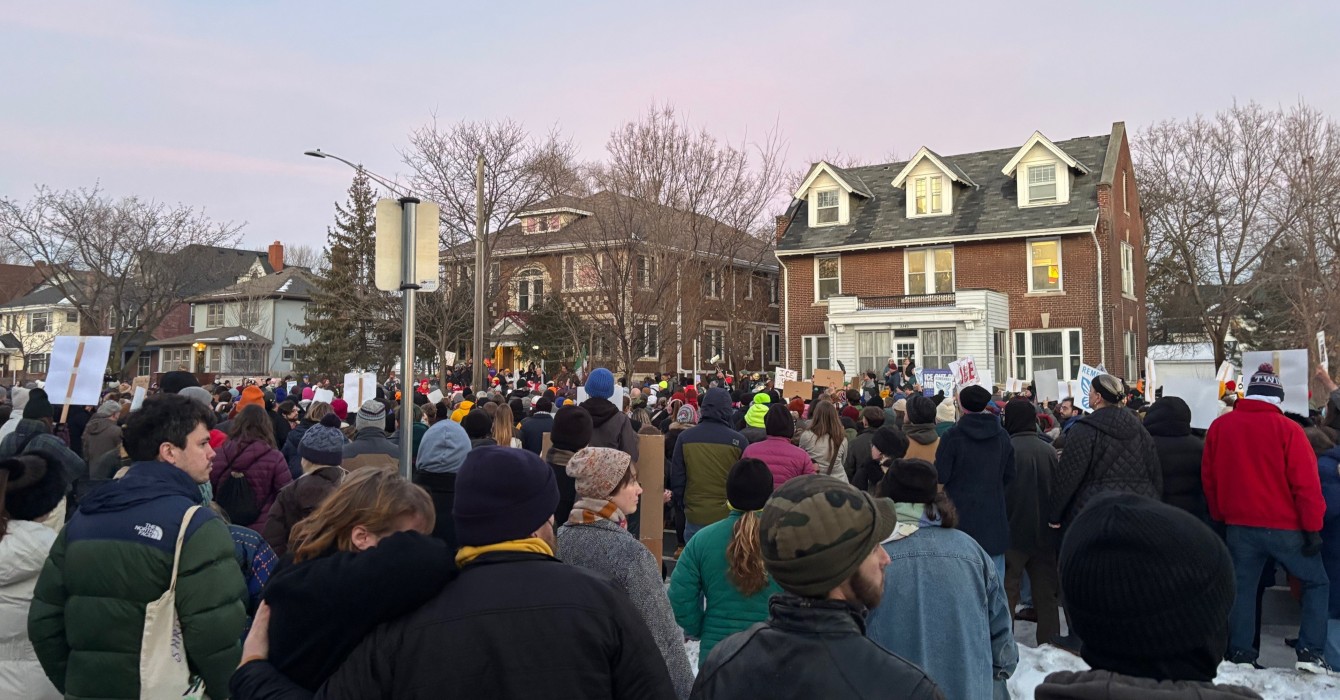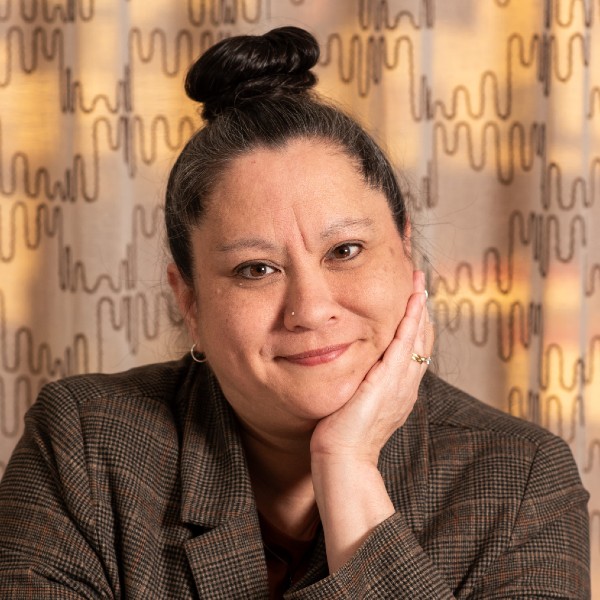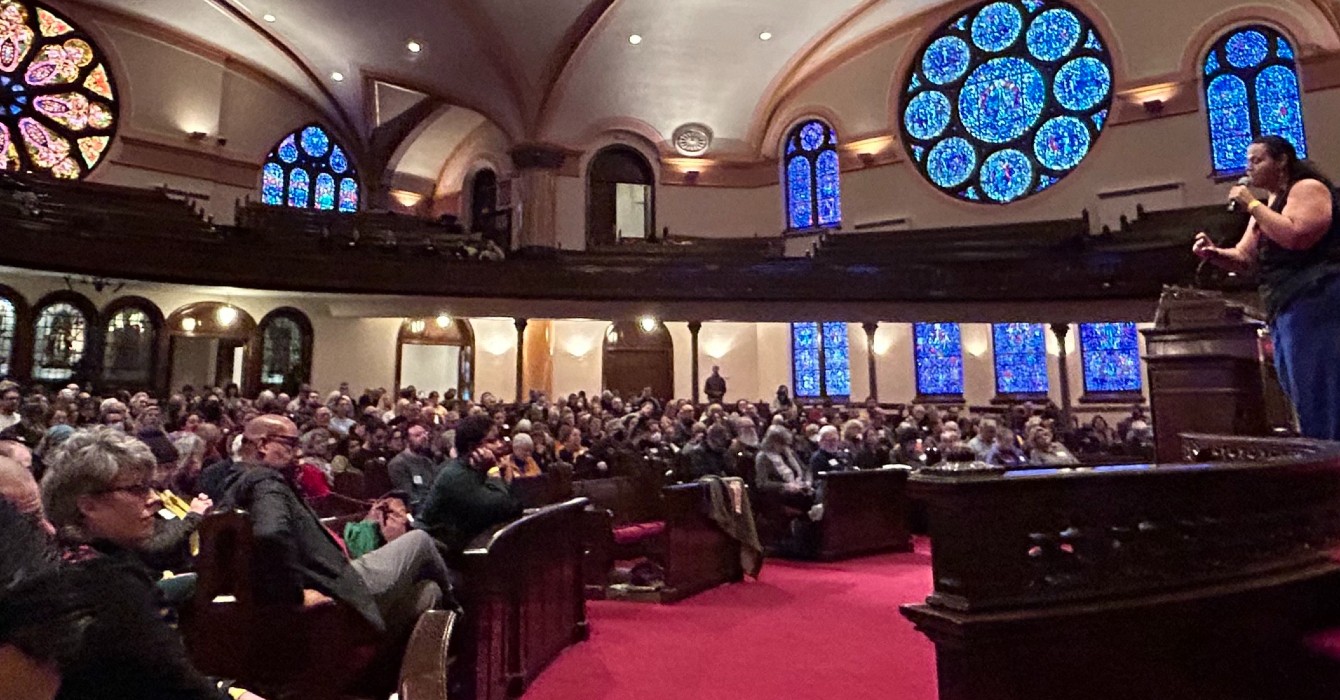20 minute read. A shorter version of this interview also is available.
Katharine Hayhoe could tell some scary stories about climate change. Really, really scary stories. But she doesn’t.
Rather than leaning into fear, Hayhoe, an atmospheric scientist whose work focuses on the impacts of climate change, prefers leaning into love.
“What does fear do? It paralyzes us,” she said. But instead of being paralyzed into inaction by fear, we have another choice. “God has given us a spirit of being able to act out of love,” said Hayhoe, who is an evangelical Christian. “Fear often focuses on me; love focuses on others.”
What does love have to do with climate change? Linking the effects of climate change to the things that people love helps them understand that the issue isn’t just scientific or abstract or happening in the future. It’s happening now, and it could affect their friends, their family — even their ski vacations.
Connecting the impact of climate change to people’s lives will help move to action the 65% of people who already are worried about climate change, Hayhoe said.
“How’s it affecting the people, places, things I love? Why does it matter to who I am as a parent and the place where I live as a person of faith?” she said.
Hayhoe is a Paul Whitfield Horn Distinguished Professor and the Political Science Endowed Chair in Public Policy and Public Law at Texas Tech University. She also serves as chief scientist at The Nature Conservancy.
She grew up in Canada the daughter of missionaries and spent part of her childhood in Cali, Colombia. She is married to bestselling author Andrew Farley, who is lead pastor of The Grace Church in Lubbock, Texas, and with whom she co-wrote “A Climate for Change: Global Warming Facts for Faith-Based Decisions.” One of her latest books is “Saving Us: A Climate Scientist’s Case for Hope and Healing in a Divided World.”
Hayhoe has received numerous awards and recognitions and spends much of her time educating people about climate change. She writes and produces a digital short series on PBS, gives talks around the country (her TED talk has more than 4 million views) and is active on social media. She also produces a newsletter with positive news and actions to take on climate change.
She earned master’s and Ph.D. degrees in atmospheric science from the University of Illinois at Urbana-Champaign and has produced more than 125 peer-reviewed papers, abstracts and other publications.
Hayhoe spoke to Faith & Leadership’s Sally Hicks about her work and offered suggestions for engaging with people about climate change. The following is an edited transcript.
Faith & Leadership: You say that the single most important thing to do about climate change is to talk about it, which surprised me — and I think might surprise others. Why is talking the most important thing?
Katharine Hayhoe: Of course, talking is not sufficient, but it is the necessary first step. Less than a third of us are actually having conversations about this on a regular basis. Talking is the first step to humans ever doing anything together, but it’s so obvious we just skip right over it. We just take it for granted.
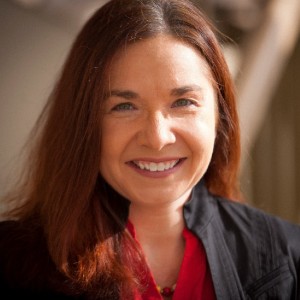
Often, when I say we [need to] talk about it, people immediately think of the dismissive [people] in their life, and they think, “Oh, now I’ve got all the tools. She wrote a book about it; she did a TED talk about it — I can convince Uncle Joe.” No. My answer to that is, “Don’t bother.”
We often think, “There’s a huge group of all the Uncle Joes of the world who are not worried and don’t care, so what I have to do is argue with them and scare the pants off them to get them to be worried.”
But what the survey data shows us is there’s a giant group of people who are worried but are not active. Is the goal to move the 20% who say they’re not worried to worried? Or is the goal to move the almost 60% who are worried but not activated into the activated category? In my opinion, the answer is B.
And if we’re going to have conversations to move people who are worried to activated, those look very different from arguing with Uncle Joe.
The conversations I recommend are conversations that take everything we know in our heads about how bad it is and how much worse it’s getting, and even how scary it truly is, and then connect our heads to our hearts.
I’m giving a talk to the National Ski [Areas] Association in a couple of weeks. They said, “Can you connect the dots to if somebody cares about skiing, why they would care about climate change?” I said, “I can easily do that. I’m a skier myself, and that’s part of why I care too.”
Then we have to help people connect their hearts to their hands: What can I do to make a difference?
How can I engage with people around me — with my church, my school, my place of work, my family, my neighborhood, my HOA, the PTA, the folks I walk my dog with, the people I play sports with? How do I connect my head to my heart to my hands to actually start to see a difference around me?
There’s this intimate connection between hope and action. Often, we have to start with action before we see the hope. Rather than sitting there and trying to wait for hope to find us, we have to go out and hunt it down through relentlessly engaging in action and encouraging others to engage in action, and then looking at what we’ve accomplished and what others have accomplished, and then sharing that with others.
That is really the positive feedback cycle that leads to hope. And it all begins with having that conversation.
F&L: Is talking more important than reducing your carbon footprint?
KH: When it comes to climate action, people usually focus on our personal carbon footprint, which is the amount of carbon pollution and other heat-trapping gases that we are directly responsible for. That’s a product of our highly individualistic society. But when it comes to climate change, we need systemic solutions.
We need solutions such that the easiest and the most affordable choice for everyone is also the best choice. Right now, we live in a world where the easiest and most affordable choice is often the worst choice.
We need to change it so that the most obvious, the no-brainer decision for most people to make is also the best decision. And that’s why we need systemic change. But what is the system made up of other than people?
Bill McKibben puts it a different way. He says, “The most important thing an individual can do right now is not be such an individual.” How do we engage with people around us to effect large-scale change? And is that not the modus operandi of the Christian faith? I mean, as Christians, what are we called to do?
Now again, let’s be clear: it’s important to do the right thing and act in a way that’s consistent with our values. But in the Christian faith, under the new covenant, we’re called to spread the good news.
We are told that we will love others because we were first loved by Christ. We are told that we have God’s love to share with others as a result of what already happened to make us new people. So our behavior is not what’s making us new.
God literally took out the heart of stone and gave us a heart of flesh, as it says in Ezekiel [36:26-27]. God made us a new creation [2 Corinthians 5:17], and therefore because of that, we’re called to walk in a way that’s consistent with who we already are.
That’s much more analogous to saying, “I am somebody who recognizes that climate change is a serious problem and wants to address it for the good of all humanity. I’m already that person. So because I’m that person, not only will I make personal choices, but I will share that news with everybody around us.”
It’s a very interesting parallel that I think is consistent with our culture and our theology. And just to be clear, I’m just talking about the nuances between personal choices and engaging with others.
It should be a nuance that’s very familiar to many in the Christian faith. Yet so often, our head is down, gazing at our own personal quiet time or spiritual disciplines, and we’re not looking at how we can love others around us.
And is that not one of the major problems confronting the church today? There’s so much focus on individual behavior and on judging other people for their behavior rather than a focus on sharing the good news and loving each other.
F&L: How do you help people navigate that feeling that it doesn’t matter what I do?
KH: That is the dominant feeling that the largest number of people currently have in the United States and Canada (where I’m from) and across much of Europe and other high-income countries. In the U.S., two-thirds of people are worried, and in Canada, the number’s higher. In Europe, the number’s even higher. That’s almost 60% of the countries worried but not activated.
At minimum, two-thirds are worried in the U.S., yet 50% feel helpless and hopeless and don’t know where to start. And only 8% are activated.
When you ask people why they’re not doing more, their answers are, No. 1, “I don’t know what to do,” and No. 2, “Nobody’s ever asked me.”
Many people who are worried, and rightly so, are still stuck in the rut of trying to motivate long-term change by sharing more and more fear-based information. And don’t get me wrong — the vast majority of the fear-based information they share is completely accurate.
In fact, if you wanted me to get started on sharing fear-based information, I’m pretty sure I could win an Olympic medal. I’d be sharing really scary information.
F&L: I’ve got to be honest, even when reading your book “Saving Us,” I had a couple of moments when I was like, “Oh, I feel the despair. I feel the sinking in my heart.”
KH: Oh, yes. Exactly. It’s hard, even as a climate scientist, to get past that.
I could write a book just as long as that book — in fact, I could write a book probably 10 times longer — that’s called “We’re Doomed, and Here’s Why.” But what I have learned from the social science is that fear serves a role to wake us up. Fear also serves a role to give us that short-term adrenaline kick that we need to get away from the bear, so to speak.
But fear is the absolute worst at motivating long-term change. If we feel like we’re doomed, well, what am I supposed to do about the ocean currents slowing down? What am I supposed to do about Greenland melting? There’s nothing I as an individual can do about those things. It enhances our feeling of helplessness, and it pushes us further into inaction.
What the social science tells us is that showing people what actions look like — what is already being done, what other people are already doing, what we could do ourselves, what the outcome of those positive actions would be, what a better future looks like, and that we could dynamically alter and increase the probability of that happening if we took actions as individuals — that is what motivates people to act and people to care.
What stood out to me the most was that everything I learned was so consistent with one of my personal favorite Bible verses that very much guides my own approach to this from a faith-based perspective. It’s 2 Timothy 1:7, where Paul is writing Timothy and Paul says, “God has not given us a spirit of fear, but of power, love, and a sound mind” (NKJV alt.).
The dominant emotion from Christians is often fear. But it says God is not the author of fear. Instead, what God has given us is a spirit of power. If you’re empowered, it means you can act.
The last part, of course, is my favorite: a sound mind, which could obviously be informed by studying God’s creation and learning what science has to tell us.
That verse is entirely in line with best practices in effective communication to motivate people to do something that makes a difference — to, again, not be such an individual, to share the good news and to motivate people to take action.
That brings us back again full circle to, Why are we doing this? We’re doing it out of love for the people and the places and things that we love. And what higher motivator is there for any of us, whether we’re people of faith or not, than to act out of love?
F&L: You’ve written, “The reason I’m a climate scientist is because I’m a Christian.” How did being a Christian make you become a climate scientist, especially when people may think of faith and science as being in conflict?
KH: I was very influenced by growing up in a home where my dad was both a teacher in a local church and a science teacher. The Bible tells us that God created this incredible universe that we live in. So what is studying the universe other than studying what God was thinking about when he set this whole thing up in the first place?
I was planning to be an astrophysicist, because I thought, “What more amazing thing is there than to use the brain God gave us and the tools we can create on this planet, which is not a very significant planet in the great scheme of things in the universe — other than the fact that we live on it and we believe that God’s Son came and visited us on it?”
I had almost finished my undergraduate degree. I was already looking at graduate schools, and I needed an extra class to finish my requirements. I looked around, and there was this brand-new class on climate change. I thought, “Well, that looks interesting. Why not take it now?”
I took this class, and I was really surprised to learn, first of all, that climate science was the same physics I’d been learning in my physics and astronomy classes. It was just a special case of planetary atmospheres.
I was also surprised to learn how urgent it was, because I still thought of it as a future issue.
The third thing I learned — and this is what changed the trajectory of my entire career — is that climate change is an environmental issue, but it is not only an environmental issue. Climate change is also a poverty issue, a hunger issue, a water issue, a disease issue; it’s an economic issue; it’s a geopolitical issue; it’s a national security issue.
Climate change is taking all of the issues we confront today, including issues like gender equity and racial equity, and it’s making them worse, because it affects all of us but it doesn't affect us equally. It’s taking all these inequalities that we already have — that so much of our Christian missions are dedicated to trying to address — and it’s actually making them worse.
Since the 1960s, the economic gap between the richest and poorest countries in the world has grown by as much as 25% thanks to climate change. If we think of all the work and all the effort and all the missions and all the organizations and everything that Christians have done to try to narrow that gap, well guess what? Climate change is pushing that apart even farther.
The way I often think of it is climate change is the hole in the bucket. If you have a bucket of whatever it is you care about and you’re pouring all the resources you have into it — all the money, all the effort — and that bucket has a hole in the bottom and that hole is getting bigger and bigger and bigger, what’s going to happen? You have to pour more effort, time, money, resources into the bucket just to keep it stable. Even as you’re pouring more and more in at the top, if you don’t patch the hole, you can’t fix any other problem.
When I realized that climate change was the hole in the bucket, that it was already affecting us today and that I serendipitously had the exact skill set that you needed to do climate modeling, I felt like, “Well, how can I not spend everything I can helping fix this problem?”
Because at the time, I thought, “It’s so urgent, surely we’ll fix it soon and then I can go back to studying galaxies.”
I could make a difference in people’s lives who are suffering today, as well as prevent measurable, quantifiable amounts of suffering in the future. I care about that because I’m a human, and I care about that because I’m a Christian. Jesus told his disciples in the book of John [13:35] that we are to be recognized by our love for others.
And what is climate change other than a failure to love? To love our sisters and our brothers and to love God’s creation? It says in Genesis 1[:28] that God gave humans responsibility over every living thing on this planet.
Because of what it says in the Bible, not because of what it says in the science, I realized that I as a Christian had to do everything I could to help with this urgent global issue.
F&L: We tend to think about climate change and climate action as folks falling into two camps: believers and deniers. How do those two camps talk to each other?
KH: I don’t like either of those labels. I don’t like the word “believer,” because I don’t “believe” in climate change. It is not a religion. The evidence, the data, is what tells us that the planet is warming. We have rigorously eliminated every other possible cause of the warming, from natural cycles to volcanoes to even something we don’t know about.
We know it’s us. We know the impacts are serious, because we’ve documented them. And we know that solutions will make a difference, because we can measure the difference that they’re already making today. It doesn’t matter whether you believe it or not.
There’s a nuance to that, though. Many opponents of climate action are aware that casting something as a religion, especially as a false, earth-worshipping religion with prophets that are wolves in sheep’s clothing, is a very effective way to get people to reject something. The rhetoric of climate change being a religion is often employed by those who don’t want people to accept it.
Many have not thought very carefully about that wording. We will hear people who genuinely are concerned about it asking people, “Do you believe in climate change?” But they don’t realize that they’re actually triggering quite a visceral reaction in those of us who grew up being warned about false prophets and about worshipping the creation rather than the Creator, as it says in the book of Romans [1:25]. I don’t think it’s an effective way of communication, nor is it accurate.
I don’t like the word “denier” either. All too often I’ve seen it applied to people who have questions. And frankly, in today’s environment, who wouldn’t have questions? It’s easier to find disinformation than it is to find correct information, sadly, especially if you go to certain Christian websites.
F&L: Is there better language to use?
KH: I prefer the spectrum developed by the Yale Program on Climate Change Communication. They have segmented people in America, and in fact people around the world, into six different groups. And they’ve given each of those groups a title — which is very reflective, and accurately reflective without being pejorative — of what characterizes people in that group.
At one end, you have people who are alarmed. If you ask them, “Are you alarmed about climate change?” they would say yes. Alarmed are currently 28% of the American population, and the next group is concerned. Concerned are 29%. That’s 57% of people who are alarmed or concerned.
Then you have 15% who are cautious. Now, what I’ve noticed is that cautious people will often lead with their doubts. They will lead with the but-what-about questions. They need answers to those questions in order to move on to being concerned. They’re cautious, because they’ve heard a lot about how it isn’t true or those scientists are just in it for the money or it’s just a natural cycle or carbon dioxide is plant food or how could the U.S. make a difference.
They’ve heard all of these objections, and it’s confusing. They don’t know where to stand on the issue. So 15% are cautious. Then 6% are disengaged, and this number has not changed much. It’s basically the number who prefer to live under a rock, and avoidance is their coping mechanism.
I sympathize with that. I would like to find that rock and live under it for a short amount of time sometimes.
At the far end, we have two groups that haven’t moved much in the last 10 years. We have 11% who are doubtful and 11% who are dismissive.
And the main reason that they’re doubtful is not because they actually have a problem with the science but because they don’t think there are any solutions that are consistent or compatible with their values. They think the solutions involve taking away everything they hold dear, imposing one-world communist government and robbing them of all their personal liberties. And why would you want to live in a world like that?
With doubtful people, rather than engaging on the science, it’s so much more important to engage on solutions that they could identify with — that relate to growing local economies, saving money, free enterprise, innovation — things that lead us toward a world that is better than the one we have today, not worse.
At the very end, we have people who are dismissive. Now, they’re only 11%, but they’re a very loud 11%. I run into them on social media every day. They’re in the comment section of every article online. They’re posting on Facebook all the time.
My personal definition of someone who’s dismissive is that if an angel from God with brand-new tablets of stone saying global warming is real and foot-high letters of flame appeared before them, that would not be enough to change their mind.
If someone’s dismissive, my best recommendation is to say, “I’m sorry, you’re wrong. And now let’s talk about something else.” If they’re your relative — and so often they are — I would say, “I love you. I’m sorry, you’re wrong. Now let’s talk about something else.”
F&L: How are you hopeful, given that the facts are fairly distressing?
KH: I practice hope. In Romans [5:3-4], Paul talks about hope, and he begins with suffering. He says that suffering leads to perseverance and perseverance to character and character to hope.
We place our hope ultimately in God, recognizing that there’s a plan and we’re just part of a body. There’s a whole body. I don’t have to be the liver, the stomach, the nervous system and the toes. I just have to be one part of that body and fulfill my responsibility in the place where I am, through acting out of love with a sound mind, with the gifts and the abilities that God has given me, to make a difference in people’s lives today as well as, hopefully, tomorrow too.
Climate change is also a poverty issue, a hunger issue, a water issue, a disease issue; it’s an economic issue; it’s a geopolitical issue; it’s a national security issue.
If you wait for hope, it will not find you. So where do we find hope? We have to go out; we have to find it. We have to hunt it down. We have to practice it. We have to dwell on it.
[The Bible] talks, in Philippians [4:8-9], about how we can practice what our mind dwells on — whatever things are pure, whatever things are lovely, whatever — it talks about actually training your mind to think on the things that are hopeful, that are full of love, that will lead to positive outcomes.
I’m not talking about wishful thinking; I’m just talking about recognizing that change is possible. Then you have to go and make it happen.
But you’re much more equipped to go out and make it happen if you realize that it is already being done in other places, that you can make a difference, that people can make a difference, and that a positive outcome is possible if we do everything we can to make that happen.
As part of my practice, I look up good news stories. I subscribe to channels on social media and news sources that are positive, that share good news.
I started a newsletter called Talking Climate, because people were asking me, “What are your good news stories? I read your book, but I need more.” I agree. We want to start every conversation with something that gets people curious or excited or hopeful. So if anybody’s looking for these stories, I would encourage them to check it out.
F&L: Do you have any particular advice for pastors?
KH: My husband is a pastor, so I can speak very personally to this. We haven’t touched yet on an issue that might be at the forefront of many pastors’ minds when they see an article about this topic. And that is the fact that for over 15 years now, climate change has been right at the top of the most politically polarized issues in the U.S.
The No. 1 predictor of whether someone agrees that climate is changing, humans are responsible, the impacts are serious, is not how educated they are, is not how smart they are, is not how much science they know; it’s simply where they fall on the political spectrum. In the United States, white evangelical Protestants and white Catholics are neck and neck at the bottom of the people who are least concerned about climate change.
But when you dig into those statistics with demographic analysis, it turns out that it’s not where people go to church that determines their perspective on climate change; it’s how they vote. It’s where they fall on the political spectrum.
But in the United States, we have reached a point where, as I’m sure many pastors are much more aware than I am, for many people, their personal statement of faith is written first by their political ideology and only a distant second by the Bible. If the two come into conflict, they will go with ideology over theology, to the point where a survey last year showed that 40% of people who self-identify as evangelical in the United States don’t go to church.
And surveys also show that while young people are leaving the church because they don’t feel that the church is reflecting their values on issues they’re passionate about — which includes climate change — older people are leaving the church primarily because their church will not be as outspoken in support of conservative or right-wing politics as they want it to be.
Since the beginning of the American Revolution, there has been a trend year after year, decade after decade, century after century, of conflating politics with religion in the United States.
Some of it has happened naturally as part of the culture revolution, but a great, large part of it has happened deliberately by bad actors who see religious voters as a powerful voting bloc that they can persuade to vote for their priorities. And so as a result, many in America have lost their way. They don’t even understand or recognize what the Bible says about loving our neighbors and caring for others and our attitude toward creation and nature, God’s creation.
I feel the mission of many pastors today is radically different from the way it was 50 or 100 years ago. They have young people who are passionate about being authentic and genuine, living out their faith. And they have many, many of the rest of us who have let political ideology and who have let what the apostle Paul calls our flesh, our fleshly identity, write our statement of faith, to the point where we have so grounded our identity on things of the world rather than on the identity that God has given us that we can’t even recognize who we are.
Pastors have a unique challenge, I would say. Just because someone says they’re a Christian doesn’t mean they are. And even if they are, it doesn’t mean they have any basic understanding of our faith. And even if they have a basic understanding, it doesn’t mean they have any understanding of what that means for all of the social issues that so many Christians care about so passionately today.
So we’re seeing a revolution, I think, in cultural perceptions of Christianity in America. We’re seeing a much more distinct separation between what the book of Matthew [25:31-46] refers to as the sheep and the goats. And our pastors are right there at the forefront of that. They are the shepherds of this flock.
More than ever, I think, it’s essential to be grounded in what the Scriptures actually say, what our theology really teaches us, what it really means to be recognized by our love for others. Today, more than ever, we need that understanding and we need that message. And I believe that if we have that right, everything flows from it.
If you wait for hope, it will not find you. So where do we find hope? We have to go out; we have to find it. We have to hunt it down. We have to practice it. We have to dwell on it.

